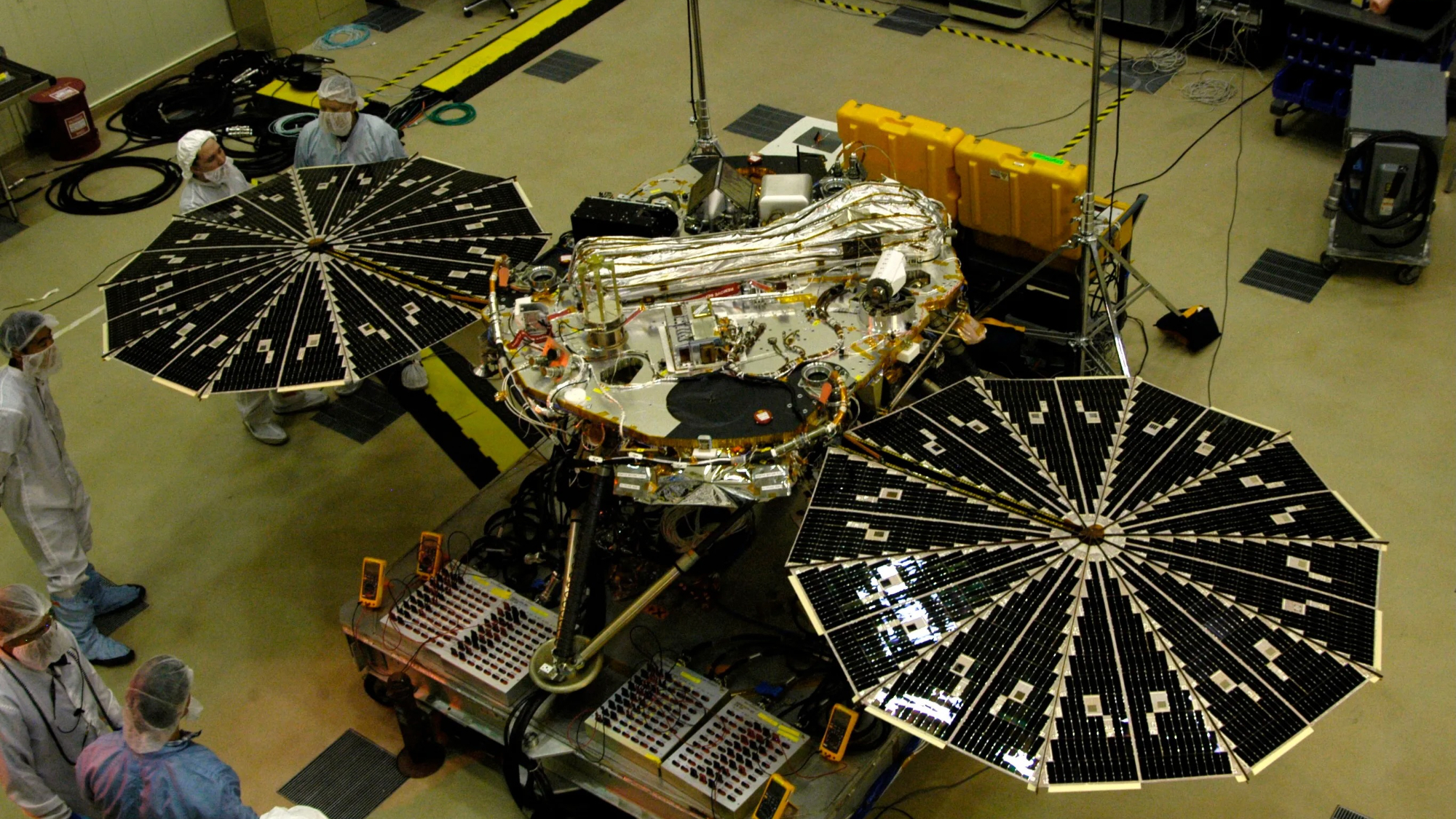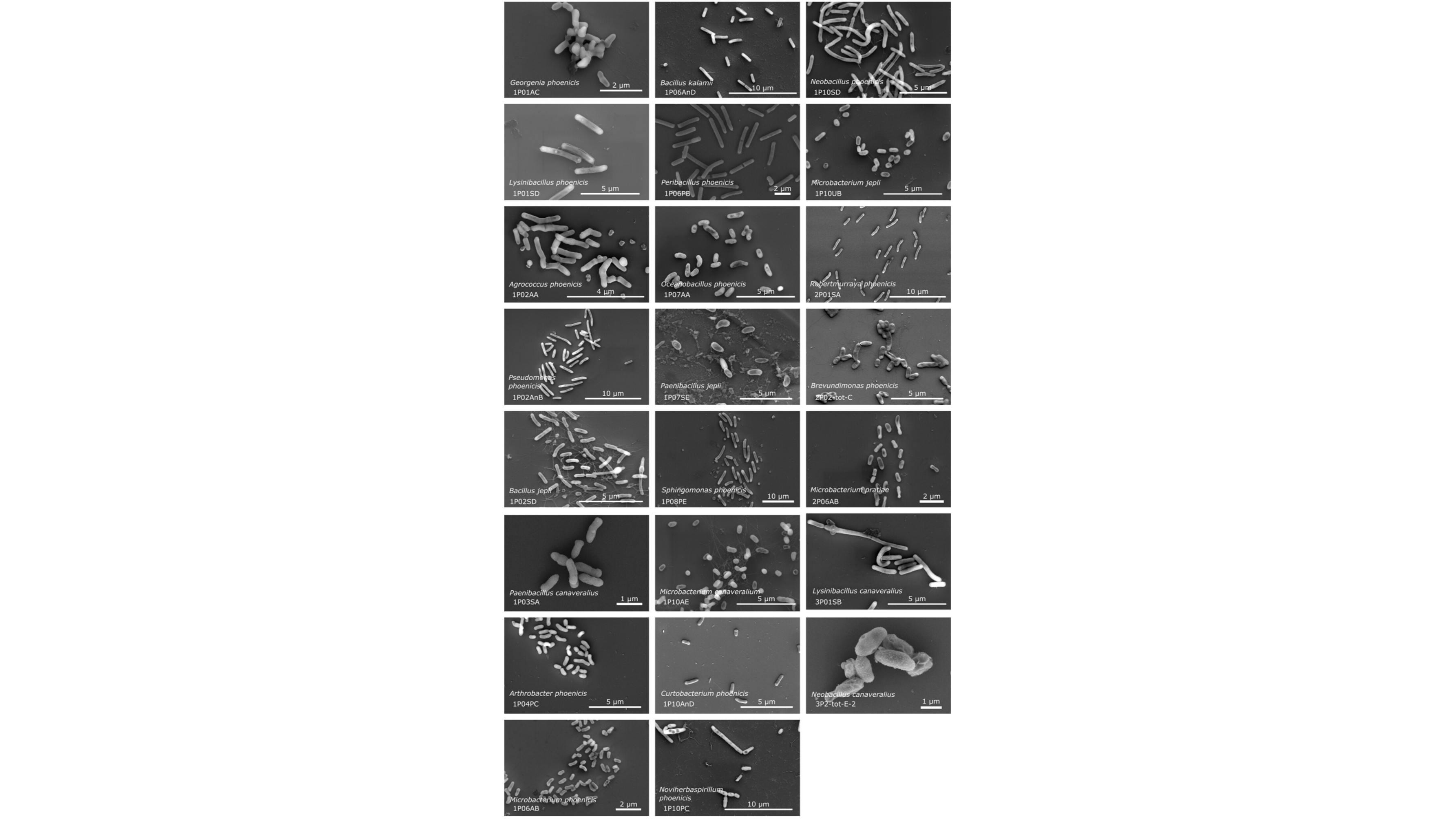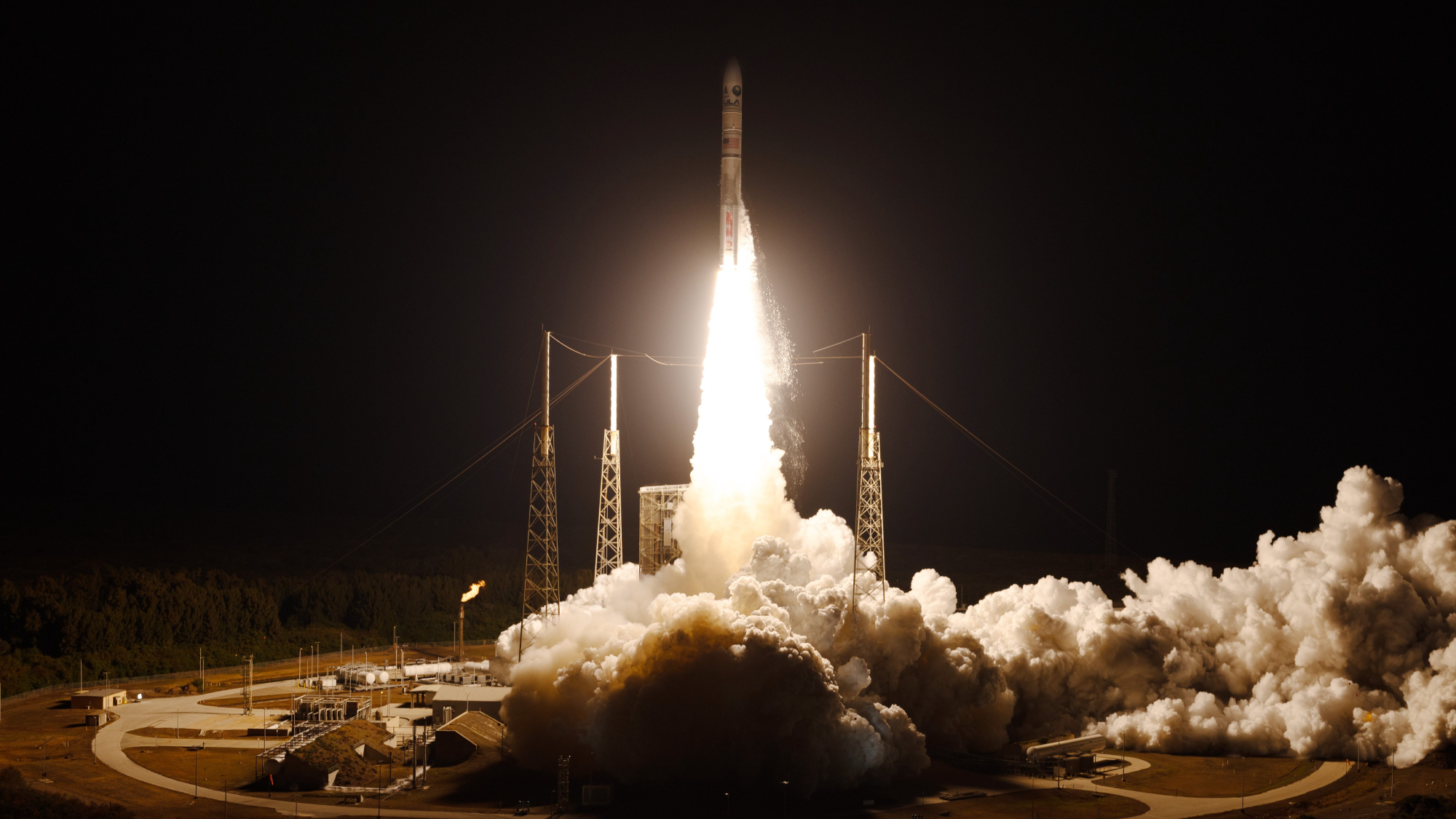Not-so-clean rooms: Scientists discover 26 new microbe species in NASA spacecraft facility
The clean rooms used to prep NASA's Phoenix Mars lander for launch were not as clean as we thought.

Breaking space news, the latest updates on rocket launches, skywatching events and more!
You are now subscribed
Your newsletter sign-up was successful
Want to add more newsletters?

Delivered daily
Daily Newsletter
Breaking space news, the latest updates on rocket launches, skywatching events and more!

Once a month
Watch This Space
Sign up to our monthly entertainment newsletter to keep up with all our coverage of the latest sci-fi and space movies, tv shows, games and books.

Once a week
Night Sky This Week
Discover this week's must-see night sky events, moon phases, and stunning astrophotos. Sign up for our skywatching newsletter and explore the universe with us!

Twice a month
Strange New Words
Space.com's Sci-Fi Reader's Club. Read a sci-fi short story every month and join a virtual community of fellow science fiction fans!
Life, as they say, finds a way — even in the most sterile places on Earth.
Scientists from NASA's Jet Propulsion Laboratory (JPL) in Southern California, along with researchers in India and Saudi Arabia, have discovered 26 previously unknown bacterial species in the clean rooms that were used to prep NASA's Phoenix Mars lander for its August 2007 launch.
Clean rooms are decontaminated and intensely controlled environments specifically designed to prevent microbial life from hitching a ride into space. But some microorganisms, known as extremophiles, show impressive resilience in inhospitable environments, whether that's the vacuum of space, hydrothermal vents on the slopes of undersea volcanoes, or even NASA clean rooms.
"Our study aimed to understand the risk of extremophiles being transferred in space missions and to identify which microorganisms might survive the harsh conditions of space," study team member Alexandre Rosado, a researcher at King Abdullah University of Science and Technology (KAUST) in Saudi Arabia, said in a statement.
"This effort is pivotal for monitoring the risk of microbial contamination and safeguarding against unintentional colonization of exploring planets," Rosado added.
These hardy microbes may also offer insights that could benefit life on Earth. The scientists performed genetic research on samples gathered from the Payload Hazardous Servicing Facility at NASA's Kennedy Space Center in Florida, one of the last stops for Phoenix before its launch from neighboring Cape Canaveral Space Force Station (then known as Cape Canaveral Air Force Station).
They found 53 strains that they determined belonged to 26 novel species. And they dug into the genomes of these newfound extremophiles, looking for clues that could help explain their extraordinary survivability. The keys might be in genes linked to DNA repair, detoxification of harmful substances and boosted metabolism, according to the team.
Breaking space news, the latest updates on rocket launches, skywatching events and more!
"The genes identified in these newly discovered bacterial species could be engineered for applications in medicine, food preservation and other industries," said Junia Schultz, a postdoctoral fellow at KAUST.

And, of course, the research will help NASA improve its clean room protocols to minimize the risk of biological contamination on future missions.
"Together, we are unraveling the mysteries of microbes that withstand the extreme conditions of space — organisms with the potential to revolutionize the life sciences, bioengineering and interplanetary exploration," said Kasthuri Venkateswaran, a retired JPL scientist and a lead author of the study on the research, which was published May 12 in the journal Microbiome.

Space.com contributing writer Stefanie Waldek is a self-taught space nerd and aviation geek who is passionate about all things spaceflight and astronomy. With a background in travel and design journalism, as well as a Bachelor of Arts degree from New York University, she specializes in the budding space tourism industry and Earth-based astrotourism. In her free time, you can find her watching rocket launches or looking up at the stars, wondering what is out there. Learn more about her work at www.stefaniewaldek.com.
You must confirm your public display name before commenting
Please logout and then login again, you will then be prompted to enter your display name.
